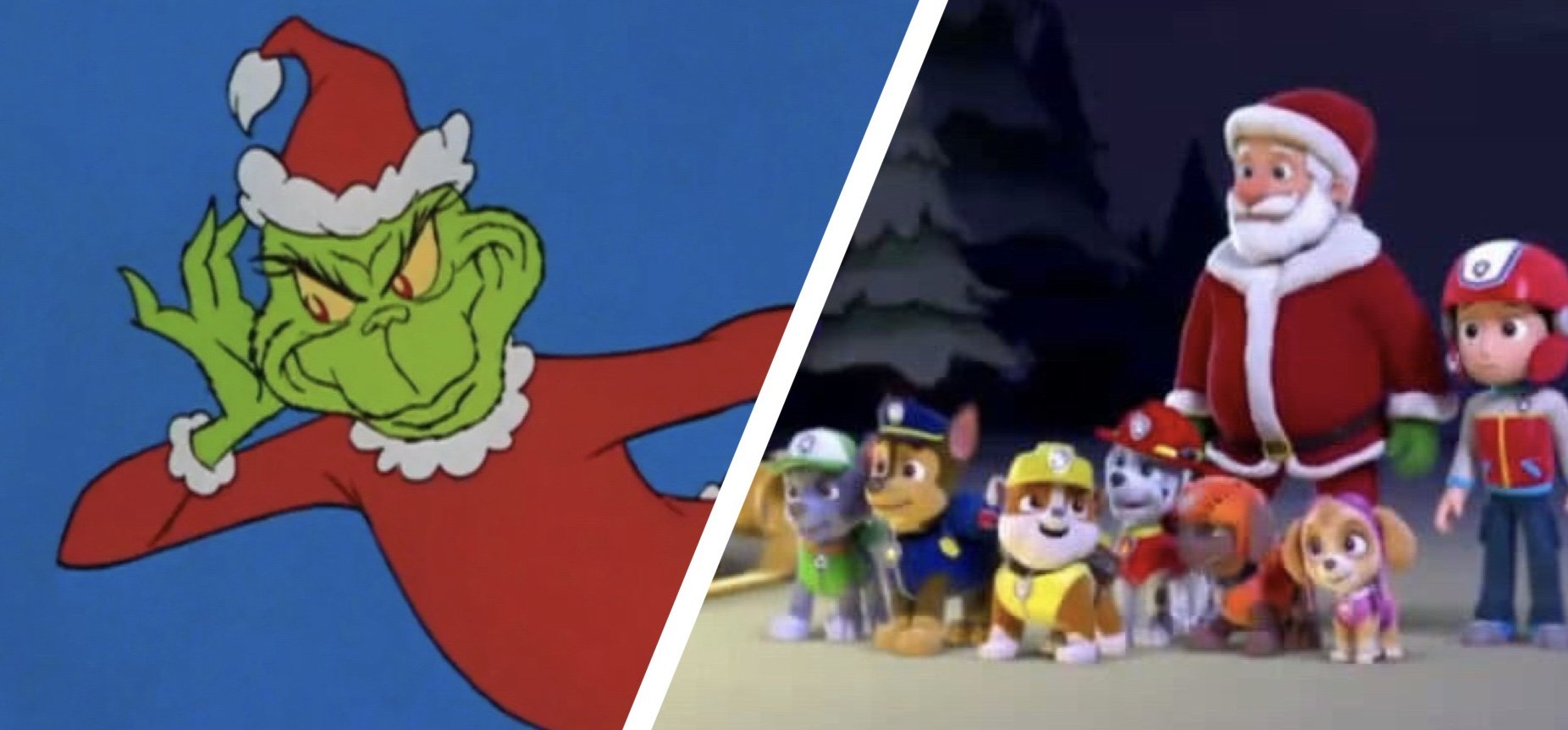Grace and the Grinch
/I’m home with a sick four-year old today, which means I’m also home with the Paw Patrol. This morning began with “The Pups Save Christmas,” an episode in which Santa crashes in Adventure Bay on Christmas Eve, losing his reindeer and scattering presents over a wide area. It’s up to Ryder and the pups to help Santa or “Christmas will be canceled.” Naturally they pull through.
There’s more to the episode than that, but I was struck for the first time by how many Christmas shows and movies center on a team of good characters helping Santa “save” Christmas. They have to work to make Christmas happen, otherwise there’s a real possibility that it won’t. “There won’t be a Christmas this year” is an oft-repeated foreboding in these stories.
By contrast, think of “How the Grinch Stole Christmas,” a story the daring of which has been lost on us through sheer familiarity. The Grinch, not just a villain but a Satanic figure, does all he can to stop Christmas. He removes all of the Whos’ material means of joy, all the trappings of Christmas that characters in other stories work to save, and Christmas still happens. “It came without ribbons,” he says in outrage that turns to wonder. “It came without tags. It came without packages, boxes, or bags.”
“Paw Patrol” and other “save Christmas” stories show us the logic of magic or paganism—or, for that matter, computer programming, which is more like magic than devotees of either science care to admit. Certain conditions have to be met to get the desired result. If presents, then happiness. Mistakes or missing parts will crash the whole system. All of these stories have a lot to say about “Christmas spirit” and “believing” but this rhetoric is belied by the stories themselves, which always feature a desperate race to help Santa on his way.
What “The Grinch” shows us, on the other hand, is the logic of grace. It shows better than any other Christmas entertainment the pure gratuitous gift of Christmas, a gift that comes into the world through the goodness of someone else and that we have no control over. We can reject it, as the Grinch does at first, but we can neither make it happen nor stop it.
The nearest that that episode of “Paw Patrol” can get to grace is to assert that “Christmas is about helping others,” which is still making Christmas happen through your own best efforts. Again, compare the Grinch. Having put a lot of work into stopping Christmas and failed, he is transformed by it. You might even say converted. The grace given to the Whos extends even to him, and he returns the literal gifts that have proven, through grace, immaterial to them. Now that the presents and ornaments and roast beast don’t matter to him either, he has the grace to share them. Material blessing comes from joy and grace rather than the other way around, which is the Grinch’s starting assumption—and that of a lot of other Christmas stories in which mere mortals have to create the conditions for Christmas themselves.
This is the wonderful paradox of Christmas. The promise that Christmas will happen no matter what we do is a purer hope than any moralistic message about spending time together or helping others. Joy comes from grace, and that joy will produce everything else that makes Christmas meaningful—including helping others. We just have to let it transform us.





